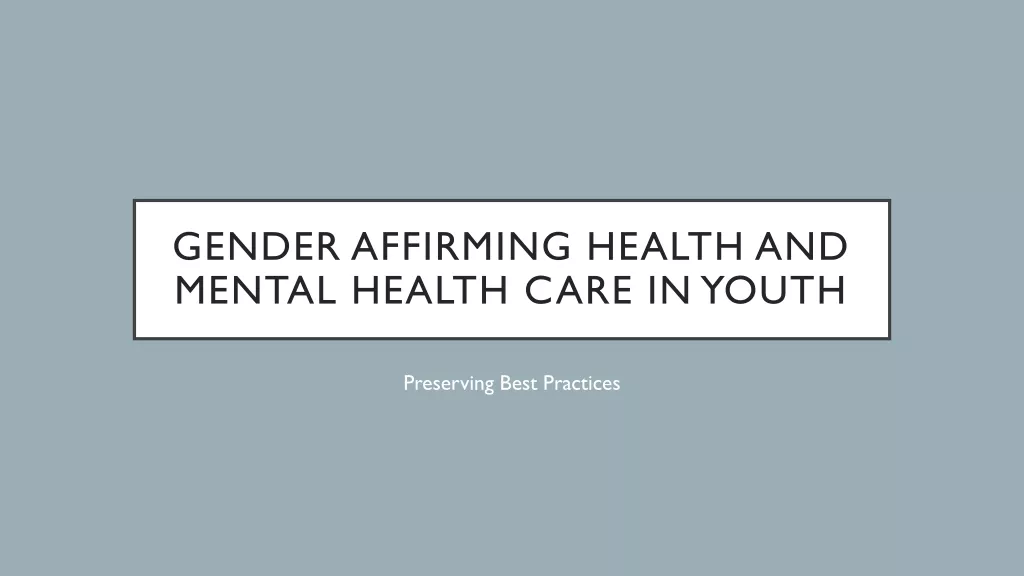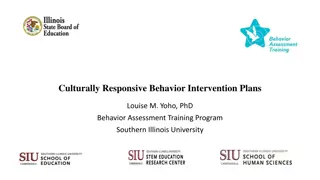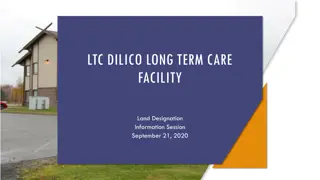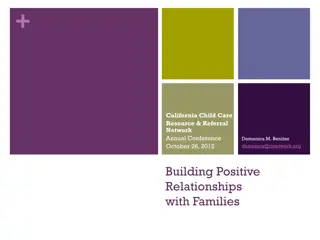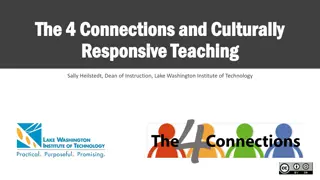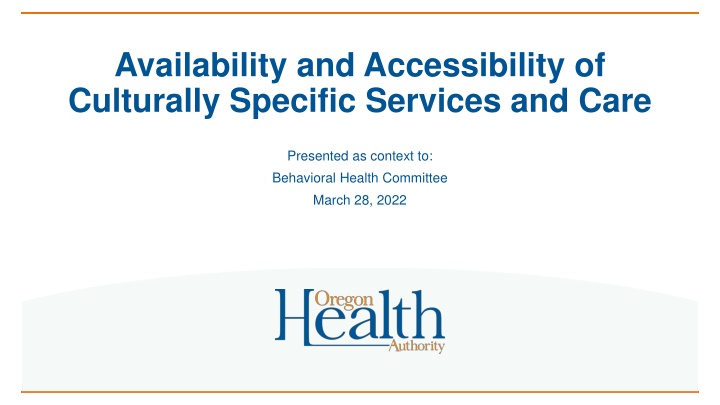
Enhancing Culturally Specific Behavioral Health Services - Insights & Recommendations
Explore the challenges faced by BIPOC communities in accessing behavioral health services due to cultural insensitivity and racism. Learn key recommendations for improving accessibility and inclusivity in mental health care.
Download Presentation

Please find below an Image/Link to download the presentation.
The content on the website is provided AS IS for your information and personal use only. It may not be sold, licensed, or shared on other websites without obtaining consent from the author. If you encounter any issues during the download, it is possible that the publisher has removed the file from their server.
You are allowed to download the files provided on this website for personal or commercial use, subject to the condition that they are used lawfully. All files are the property of their respective owners.
The content on the website is provided AS IS for your information and personal use only. It may not be sold, licensed, or shared on other websites without obtaining consent from the author.
E N D
Presentation Transcript
Availability and Accessibility of Culturally Specific Services and Care Presented as context to: Behavioral Health Committee March 28, 2022 HEALTH POLICY AND ANALYTICS DIVISION
The CCC Report https://www.coalitioncommunitiescolor.org/2021-bh-report Published in Dec 2021 Sets the context for this metric concept 444 survey respondents and numerous focus groups
Overview: Key Findings Many survey participants shared that they hesitate to (or simply chose not to) visit behavioral health providers because of previous experiences of racism, discrimination, and cultural insensitivity. BH utilization rates are low. BIPOC communities seek behavioral health services from religious figures, traditional healers, and culturally specific and community-based organizations at higher rates than CCOs, urgent care facilities, and emergency rooms. Western/Anglo-centric assumptions about behavioral health alienate and harm BIPOC communities. 3 3 3 3 3
Overview: Key Recommendations CCOs and health systems should partner with and invest in culturally-specific leaders and organizations to support community-centered care networks. Investments should be made in a multilingual and multicultural behavioral health workforce that includes formal and consistent statewide processes for training, licensing, hiring, retaining, and compensating workers. In partnership with culturally specific organizations and community-based leaders, culturally informed training and practice-based evaluation should be developed for providers. Hire diverse staff and decision makers. BIPOC people are underrepresented in the BH workforce beyond entry-level positions. 4 4 4 4 4



